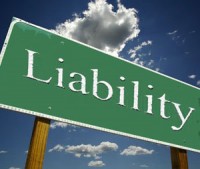
Torres v. Nev. Direct Ins. Co. (Nev. Supreme Ct. – July 30, 2015)
The issue is whether an injured party may assert NRS 485.3091, Nevada’s absolute-liability statute, in order to sue a tortfeasor’s insurer after obtaining a judgment against the tortfeasor, and whether an injured party can pursue a bad faith claim against the insurer.
In April 2006, Perez-Castellano was driving a vehicle owned by Mollinedo-Cruz and insured by Nevada Direct Insurance Company (NDIC) when he crashed into Torres’ car, injuring Torres. Neither Mollinedo-Cruz nor Perez-Castellano contacted NDIC. Torres filed a complaint against Mollinedo-Cruz and Perez-Castellano for negligence, negligent entrustment, and punitive damages stemming from the car accident. Mollinedo-Cruz and Perez-Castellano answered the complaint, denying all of the allegations and raising several affirmative defenses. Mollinedo-Cruz and Perez-Castellano then stopped participating in the action.
NDIC subsequently filed a complaint for declaratory relief against Mollinedo-Cruz, Perez-Castellano, and Torres. NDIC argued that because Mollinedo-Cruz violated the policy in failing to cooperate with the post-accident investigation, NDIC was not responsible for his defense or indemnification in Torres’s suit against Mollinedo-Cruz. NDIC made an offer of judgment for $1 more than Mollinedo-Cruz’s policy limit to Torres, but she declined the offer. The district court entered default judgments against Mollinedo-Cruz and Perez-Castellano in the declaratory relief case and concluded that NDIC was not obligated to defend or indemnify either of them for the accident with Torres. But, the district court concluded that the default judgments did not apply to and are not binding on Torres and she could pursue any and all claims/defenses available to her under Mollinedo-Cruz’s insurance policy. Torres subsequently acquired a default judgment against Mollinedo-Cruz and Perez-Castellano in her original liability action.
Torres then filed a new complaint against NDIC. Torres claimed that NDIC breached the insurance policy when it failed to pay her claim, she was entitled to damages based on a theory of promissory estoppel, and NDIC breached the implied covenant of good faith and fair dealing. NDIC filed a motion to dismiss Torres’ promissory estoppel and breach of the implied covenant of good faith and fair dealing claims for failure to state a claim. The district court denied NDIC’s motion on Torres’ promissory estoppel claim, but granted the motion on Torres’ claim that NDIC breached the implied covenant of good faith and fair dealing.
At the conclusion of a two-day bench trial, the district court entered judgment in favor of NDIC. The district court concluded that Torres was neither a named contracting party nor an intended third-party beneficiary of the insurance contract. The court further concluded that Torres was not a judgment creditor of NDIC because NDIC obtained its default judgment that it had no duty to defend or indemnify anyone for the accident with Torres before Torres obtained her default judgment against Mollinedo-Cruz and Perez-Castellano. The court also concluded that NDIC fulfilled any obligations under the insurance contract because NDIC made an offer of judgment for the policy limit to Torres, which she rejected.
In regard to Torres’ promissory estoppel argument, the district court determined that letters sent from NDIC to Torres indicating that it was reviewing her medical records and it would review the demand and contact Torres’ counsel with an offer did not amount to a promise to pay any amount, and that none of the correspondence between NDIC and Torres precluded Torres from taking action. Torres appealed.
Torres argued that the district court erred when it failed to apply NRS 485.3091 to her action. Torres also argued that the district court erred when it considered the statutory offer of judgment made in the separate declaratory relief action and concluded it satisfied NDIC’s obligations under NRS 485.3091.
Continue reading “Can an insurer circumvent Nevada’s absolute-liability statute?”
